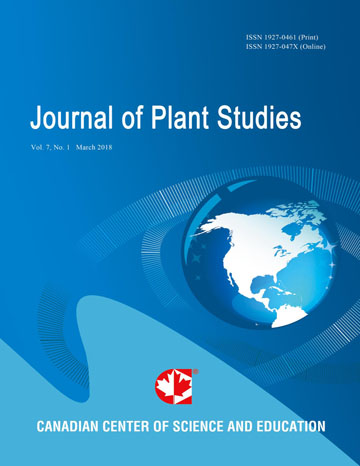In vitro Bioassay of Allelopathic Activities of a Mangrove Tree, Kandelia obovata, and Fast-growing Trees, Betula platyphylla and Populus alba, Using Protoplast Co-culture Method
- Hamako Sasamoto
- Shinso Yokota
Abstract
Allelopathic activities of a salt-tolerant and low-temperature tolerant mangrove tree, Kandelia obovata, which grows in brackish water regions of sub-tropical areas, and two fast-growing trees, Betula platyphylla and Populus alba, which grow in the temperate area, were examined by two in vitro bioassay methods, the sandwich method using dried leaves and the protoplast co-culture method using leaf protoplasts. Lettuce root growth examined by the sandwich method, was inhibited 50% by 50 mg dried mature leaves of K. obovata. In the protoplast co-culture method, inhibition rates of cell division of lettuce protoplasts were 31% and 69% by leaf protoplasts of K. obovata at densities of 1 × 104 mL-1 and 5 × 104 mL-1, respectively. These results were compared with the inverse relationship between allelopathic activities and salt tolerance of mangrove plants of different families. B. platyphylla showed 37% inhibition by the sandwich method using dried young leaves, but only 10% inhibition at 5 × 104 mL-1 by the protoplast co-culture method using leaf protoplasts of B. platyphylla. Dried young leaves of P. alba showed 66% inhibition, but the leaf protoplasts at the density of 5 × 104 mL-1 showed highly stimulatory activity. Abscisic acid, of which contents in leaf protoplasts of three tree species varies from high to low in relation to salt tolerance and recalcitrance of tissue culture, was discussed as a putative allelochemical.
- Full Text:
 PDF
PDF
- DOI:10.5539/jps.v10n2p8
Index
- AGRICOLA
- CAB Abstracts
- CABI
- CAS (American Chemical Society)
- CNKI Scholar
- Elektronische Zeitschriftenbibliothek (EZB)
- Excellence in Research for Australia (ERA)
- Google Scholar
- JournalTOCs
- Mendeley
- Open policy finder
- Scilit
- Standard Periodical Directory
- Technische Informationsbibliothek (TIB)
- WorldCat
Contact
- Joan LeeEditorial Assistant
- jps@ccsenet.org
